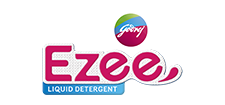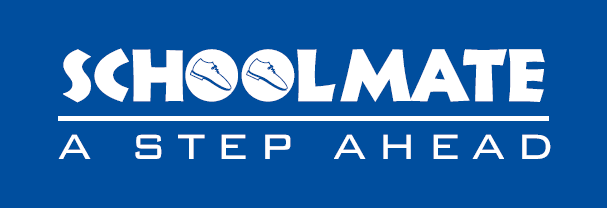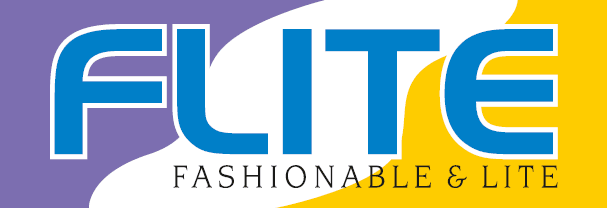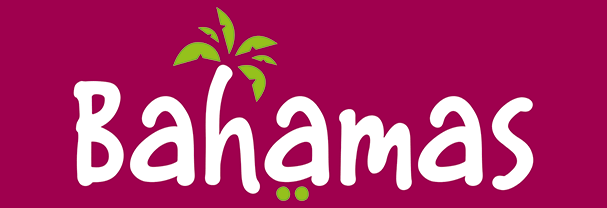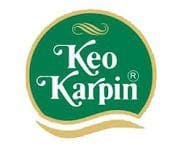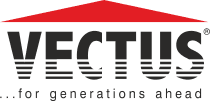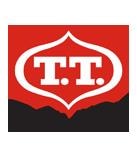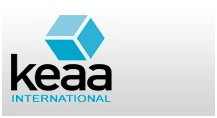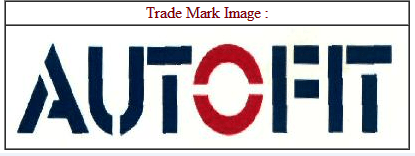Intellectual Property News
- DC Comics Seems to Think It Owns the Word “Super” for Superheroes
<p>IPNews® – DC Comics has recently filed a trademark opposition to prevent registration of the SUPER BABIES trademark. Here is the one twist: DC Comics does not use that trademark. Instead, DC Comics is claiming that due to its use of many trademarks that use the word SUPER in relation to super heroes, consumers are still... <a href="https://www.intellectualpropertynews.com/trademark-news/dc-comics-seems-to-think-it-owns-the-word-super-for-superheroes/">Continue Reading</a></p> - Musk Still Defends Twitter Trademark After Aggressive Rebrand
<p>IPNews® – As we all know, the popular social networking site formerly called Twitter is now called X. Regardless, X apparently doesn’t want to completely give up all of its Twitter related trademarks. In fact, it appears that X is willing to litigate over any unauthorized use of its old trademarks. To continue reading, click: Musk Still... <a href="https://www.intellectualpropertynews.com/trademark-news/musk-still-defends-twitter-trademark-after-aggressive-rebrand/">Continue Reading</a></p> - Facebook’s Meta Trademark Might Be in Danger
<p>IPNews® – Meta is slowly but surely clearing obstacles in its effort to register its META trademark. The latest hurdle is Metaformers, Inc., a Virginia corporation that filed a trademark opposition against the META trademark application. Metaformers claims it’s been using the “Meta” trademark since at least 2001, and as such the META trademark application... <a href="https://www.intellectualpropertynews.com/trademark-news/facebooks-meta-trademark-might-be-in-danger/">Continue Reading</a></p>
AG IP News
- USPTO Announces National Strategy for Inclusive Innovation
WASHINGTON – On May 1, 2024 at an event on Capitol Hill, the US Patent and Trademark Office (USPTO) announced, in conjunction with the agency’s work with the Council for Inclusive Innovation (CI2), a new National Strategy for Inclusive Innovation. The Strategy aims to grow the economy, create quality jobs, and address global challenges by increasing participation in STEM, inventorship, and innovation among youth and those from historically underrepresented and underresourced communities, a press release by the USPTO stated. The protection of intellectual property (IP), including patents and trademarks, has been at the forefront of advancement in science and technology. However, opportunities to participate in the US innovation system have been historically unequal. Our most recent Progress and Potential report found that while more women are entering and staying active in the patent system, only 12.8% of all inventors named on US patents are women. At the same time, a Harvard University study revealed that white Americans are three times more likely to invent than Black Americans, and that children born to parents in the top 1% of income earners are 10 times more likely to become inventors than those from families with below-median income. In the continued effort to advance the mission of inclusive innovation, the USPTO has outlined a comprehensive strategic approach for the federal government, academic institutions, and private industry to share and implement best practices that inspire and support a diverse population of problem-solvers. “Opportunities for innovation, creativity, and entrepreneurship should be accessible to everyone, especially those who have historically lacked access to our most valuable support systems and resources,” said US Secretary of Commerce Gina Raimondo. “USPTO’s National Strategy for Inclusive Innovation outlines a pathway to success for inventors from all backgrounds. This is a reminder that America’s diversity is our greatest strength, but only if everyone has the opportunity to fulfill their potential. By empowering innovators and entrepreneurs from all communities, we can help ensure America’s global competitiveness for decades to come.” “In order to fulfill our nation’s innovative promise, every sector of the innovation ecosystem—industry, associations, governments, and schools—must take tangible steps to ensure that all Americans can fully realize their inventive and entrepreneurial potential,” said Under Secretary of Commerce for Intellectual Property and Director of the USPTO Kathi Vidal. “This Strategy provides a call to action and roadmap to achieve innovative success. When we all work together with a common objective, we can do big things for each other and the country.” The Strategy is built upon four Cornerstones, each of which is critical to maximizing American prosperity. The Cornerstones include: • Addressing K-12 educational disparities and the need to inspire youth of all backgrounds to become innovators • Focusing on post-secondary educational disparities for students and faculty • Promoting inclusiveness in organizations • Increasing, for all Americans, commercialization opportunities for innovations The Strategy complements the National Entrepreneurship Strategy recently released by the Economic Development Administration’s (EDA) National Advisory Council on Innovation and Entrepreneurship (NACIE), on which Director Vidal sits as a co-chair, that includes recommendations for how the U.S. Department of Commerce, the federal government, and the private sector can foster an entrepreneurship ecosystem that ensures the United States leads in critical technology innovation. Director Vidal will discuss the new Strategy at an event celebrating World IP Day on Capitol Hill that will also feature members of Congress and representatives from the U.S. Copyright Office and IP organizations. The USPTO’s 2019 Report to Congress as part of the SUCCESS Act of 2018 required the agency to identify publicly available data on the patenting activity of underrepresented groups and the benefits of increasing this activity. As part of that report, the USPTO pledged to create a council for innovation inclusiveness consisting of representatives from the general public, private corporations, academia, nonprofit organizations, and the US government. This council would help develop a national strategy for promoting and increasing the participation of underrepresented groups as inventor-patentees, entrepreneurs, and innovation leaders. Since then, the USPTO formed the Council for Inclusive Innovation, or CI2. In connection with its collaboration with CI2, the USPTO has launched key initiatives such as a First-Time Filer Expedited Examination Program that offers extra support for inventors new to the patent system; an IP Champions program that leverages our nationwide workforce to provide IP assistance and training within their communities; a diversity information platform that provides data-driven analyses and a one-stop shop for discussing and sharing best practices; the expansion of our nationwide pro bono programs providing free legal assistance to underresourced inventors; and a paid innovation internship program for college students from underrepresented communities, among other initiatives. With today’s launch of the National Strategy for Inclusive Innovation, USPTO is taking an important step towards greater equity in inventorship and will continue to advance the key tenets underpinning the Strategy through its goal of fostering more inclusive innovation throughout America. To further this goal, the USPTO recently updated its website to indicate more locations where patenting and trademark registration assistance can be found. These locations include our five Regional Offices and more than 90 Patent and Trademark Resource Centers (PTRCs). PTRCs are a USPTO-designated network of libraries where visitors can learn more about filing applications for patents and trademarks and get their questions answered. To find a PTRC or a Regional Office near you and learn more about services offered, visit USPTO’s new Locations page on the USPTO website. About USPTO The USPTO is the federal agency for granting US patents and registering trademarks. The strength and vitality of the US economy depends directly on effective mechanisms that protect new ideas and investments in innovation and creativity. The USPTO advises the President of the United States, the Secretary of Commerce, and US government agencies on intellectual property (IP) policy, protection, and enforcement; and promotes the stronger and more effective IP protection around the world. More information is available at uspto.gov/about-us. About the Council for Inclusive Innovation (CI2) CI2 was born out of the USPTO’s 2018 SUCCESS Act report transmitted to Congress in 2019, which found that women and minorities are underrepresented as inventors and as patentees named on U.S.-granted patents. Based on the report findings the USPTO launched a high-level council of industry, academic, professional, and government leaders tasked with helping support a national strategy for increased participation of underrepresented groups in innovation—as inventors, entrepreneurs, and innovation leaders. CI2 is charged with strategizing new ways to expand American innovation by increasing the opportunities for all Americans to participate in innovation. More information is available at Council for Inclusive Innovation (CI2) | USPTO. - A New Book on Dr. Abu-Ghazaleh?s Global Contributions Released
Special to AG-IP-News Agency AMMAN – Talal Abu-Ghazaleh Global (TAG.Global) has recently released a book entitled ‘Talal Abu-Ghazaleh: Global Knowledge Worker in Serving International Organizations’. The book outlines the contributions of HE Dr. Talal Abu-Ghazaleh, TAG.Global founder and chairman, while serving on various high-ranking international positions in a number of global business organizations and United Nations agencies. The book compliments part of the contributions previously highlighted in the ‘Talal Abu-Ghazaleh: A World Leader in Business Serving Humanity through the United Nations’ book written by Mr. Sarbuland Khan, a former senior United Nations official. The book also sheds light on Dr. Abu-Ghazaleh’s major impact on numerous global developments and events. The newly-published book was compiled by Ms. Amaal Al Damen, TAG.Global Media Executive director, who said that the great efforts made by Dr. Abu-Ghazaleh during his tenure in international positions or his personal initiatives enabled him to provide his valuable experiences that helped formulate future visions for many institutions, in addition to creating solutions to improve integration and to strengthen relations between countries. She also highlighted the contributions of Dr. Abu-Ghazaleh in laying new foundations for a world free of conflicts; where peace, economic prosperity, and global stability would prevail. Moreover, Ms. Al Damen referred to the great role Dr. Abu-Ghazaleh plays in sharpening and empowering the role of youth in society, and maximizing the benefits achieved from reinforcing the economy in general, while at the same time recognizing the magnitude of the challenges facing countries to encounter such challenges through objective dialogue, in addition to launching and adopting creative initiatives in cooperation with governments, companies, representatives of civil society, private sector and academic institutions. Ms. Al Damen went on to add that the book shed light on efforts and contributions Dr. Abu-Ghazaleh provides internationally in accounting, intellectual property, artificial intelligence, information and communication technology domains, in addition to the international relations especially the Chinese-Arab ties. The book also details the international activities Dr. Abu-Ghazaleh presented in the education sector and community service. The book lists some of the international positions Dr. Abu-Ghazaleh assumed in various international institutions as well as his contributions to the world, including the World Trade Organization (WTO), the World Bank, the International Organization for Standardization, the World Tourism Organization (UN Tourism), the Africa-Med-Europa Foundation (La Verticale), the Bosphorus Summit, the International Federation of Accountants (IFAC), the International Financial Reporting Standards (IFRS), the World Intellectual Property Organization (WIPO), the International Trademark Association (INTA), the Internet Corporation for Assigned Names and Numbers (ICANN), the International Chamber of Commerce (ICC), the League of Arab States (LAS), the Shenyang Normal University in China, the Consortium for Sustainable U (CSU) and other international institutions. It is worth mentioning that the book is available for free by contacting Talal Abu-Ghazaleh International Press and Publishing (TAG-Publish), a member of TAG.Global. - FTC and FCC Sign Memorandum of Understanding on Continued Cooperation on Consumer Protection Issues
WASHINGTON - The Federal Trade Commission (FTC) and the Federal Communications Commission (FCC) have signed a Memorandum of Understanding (MOU) reiterating the agencies’ ongoing cooperation on consumer protection matters in response to the FCC’s decision last week to restore net neutrality by reclassifying broadband service as a Title II telecommunications service, a press release stated by the FTC. “The FTC is squarely focused on protecting Americans from illegal business tactics, from tackling AI-enabled voice cloning fraud to fighting the scourge of robocalls. We look forward to continuing to work in close partnership with the FCC,” said FTC Chair Lina M. Khan. “Effective law enforcement requires targeting the upstream actors enabling unlawful conduct, and having the FCC as a partner here will be critical.” “Consumers do not want their broadband provider cutting sweetheart deals, with fast lanes for some services and slow lanes for others. They do not want their providers engaging in blocking, throttling, and paid prioritization,” said FCC Chairwoman Jessica Rosenworcel. “If consumers have problems, they expect the Nation’s expert authority on communications to be able to respond. Now we can. In partnership with our colleagues at the FTC, we will protect consumers and ensure internet openness, defend national security, and monitor network resiliency and reliability. I thank Chair Khan and her team for their leadership and cooperation in protecting consumers.” The MOU formalizes the existing cooperation between the agencies, outlining how the FTC and FCC will coordinate consumer protection efforts. The memorandum details methods by which the agencies will coordinate and share information and recognizes the agencies’ expertise in their respective jurisdictions. The MOU reiterates that the FTC would continue to have jurisdiction over non-common carrier activities carried out by common carriers and clarifies that the FCC order does not impact the FTC’s jurisdiction over Voice Over Internet Providers. The agencies have followed a similar MOU related to telemarketing enforcement issues since 2015. The MOU announced today will go into effect when the FCC’s net neutrality goes into effect. The Federal Trade Commission works to promote competition and protect and educate consumers. The FTC will never demand money, make threats, tell you to transfer money, or promise you a prize. Learn more about consumer topics at consumer.ftc.gov, or report fraud, scams, and bad business practices at ReportFraud.ftc.gov. Follow the FTC on social media, read consumer alerts and the business blog, and sign up to get the latest FTC news and alerts.
IPWatchdog
Law360
- UK Litigation Roundup: Here's What You Missed In London
The past week in London has seen rapper Ivorian Doll hit with a copyright claim, private members club Aspinalls file a claim against a Saudi sheikh, and Motorola Solutions file a claim against the British government on the heels of its dispute over losing a £400 million ($502 million) government contract. Here, Law360 looks at these and other new claims in the U.K. - How Cos. Can Protect IP In Light Of FTC Noncompete Rule
While several groups are challenging the Federal Trade Commission’s recently approved rule banning noncompetition agreements, employers should begin planning other ways to protect their valuable trade secrets, confidential information and other intellectual property, says Thomas Duston at Marshall Gerstein. - The Fed. Circ. In April: Hurdles Remain For Generics
The Federal Circuit’s recent Salix v. Norwich ruling — where Salix's brand-name drug's patents were invalidated — is a reminder to patent practitioners that invalidating a competitor's patents may not guarantee abbreviated new drug application approval, say Sean Murray and Jeremiah Helm at Knobbe Martens.
Spicy IP News
- Problem Statement Precision: A Key Factor in TSM-Based Non-Obviousness Determination?
Discussing the Madras High Court’s Microsoft Technology Licensing v. Asst. Controller of Patents decision on the role of PSITA in determining non obviousness, we are pleased to bring to you this post by Kevin Preji. Kevin is a second-year law student at NLSIU Bangalore and wrote this post while interning with us. His passion lies in understanding the intersection of economics and public health with intellectual property rights. His previous posts can be accessed here. Problem Statement Precision: A Key Factor […] - SpicyIP Weekly Review (April 22- April 28)
Here is our recap of last week’s top IP developments including summaries of posts on the Ericsson- Lava SEP dispute, disclaimed trademarks, and impact of patents on innovation in academia. Anything we are missing out on? Drop a comment below to let us know. Highlights of the Week Some Thoughts on the “Fairness” of the Delhi High Court’s Ericsson-Lava FRAND Determination- Part II Continuing their discussion on the DHC Ericsson- Lava decision, Swaraj and Praharsh critique the reasons (and lack […] - Disclaimed Trademarks: Protection or Usurpation
We are pleased to bring to you this guest post on the statutory position and judicial interpretation of disclaimed marks in the Indian trademarks regime. The post is authored by Surabhi Katare who is a fifth year student at Hidayatullah National Law University, Raipur. Surabhi is interested in IPR, media, and tech laws and wants to pursue a career in IP and allied areas. Disclaimed Trademarks: Protection or Usurpation By Surabhi Katare While the foundational principle of trademarks as a […]
Akingump
IAM
My Caring Brands
Brands and Fakes has aligned the capabilities of the service delivery eco system with the industry verticals, so that the Brands under various industry verticals and sub verticals are able to get services from expertise in their specific domains.
 Android
Android



